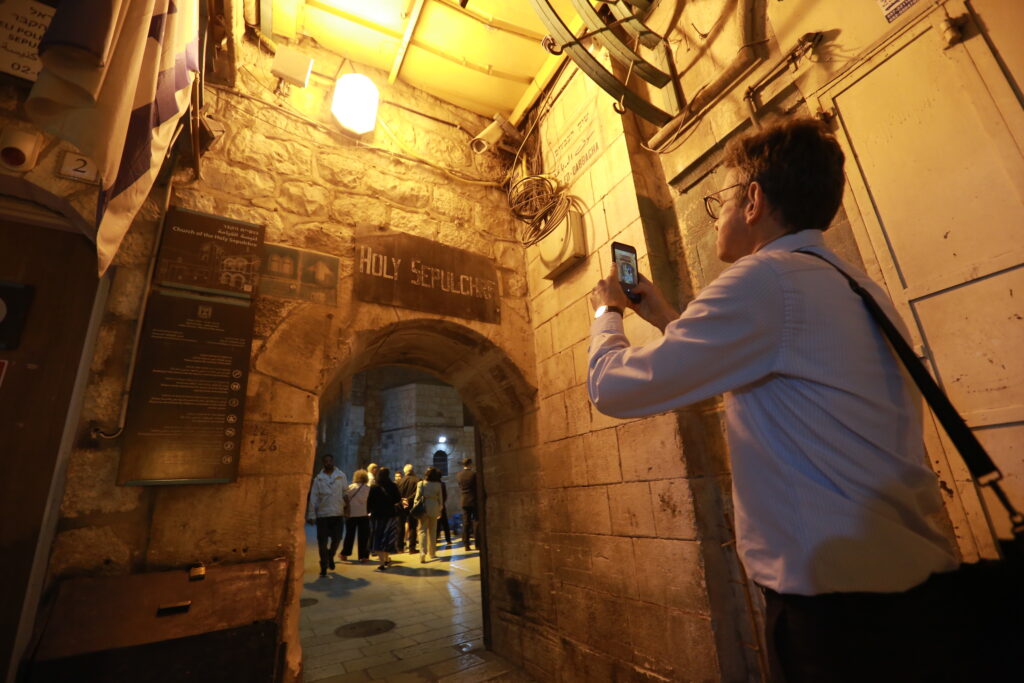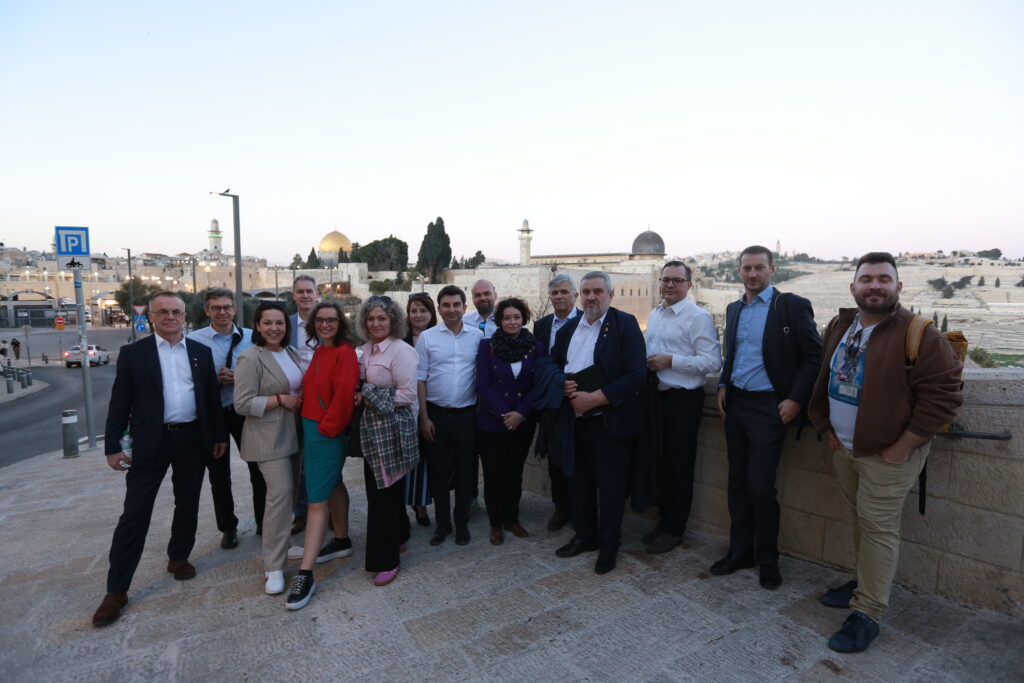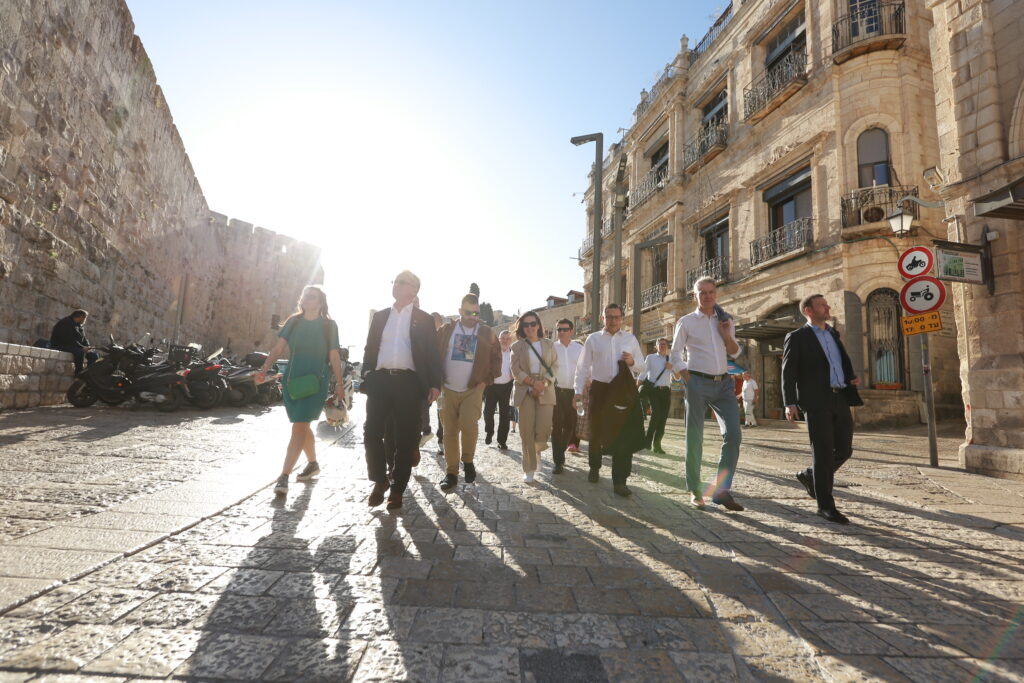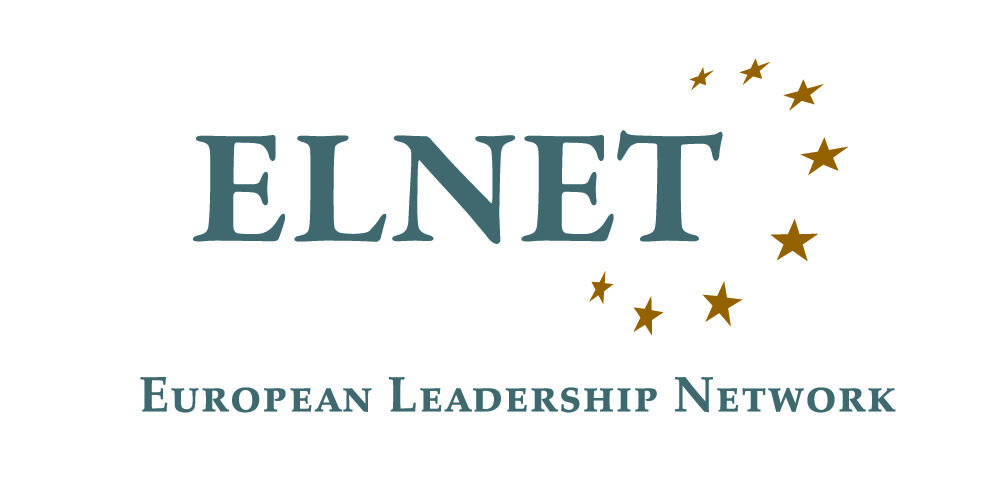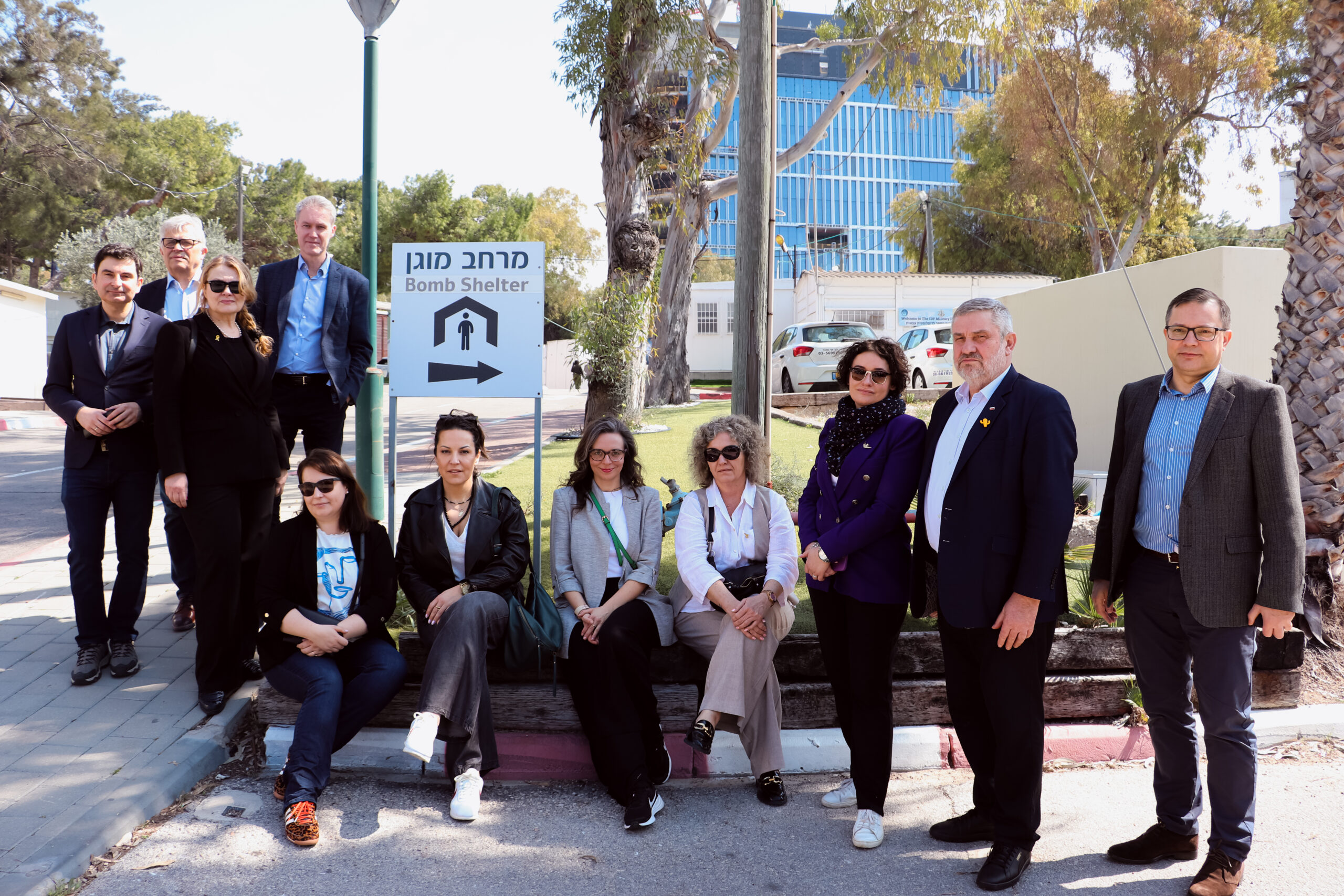Between March 9-13, ELNET CEE facilitated a pivotal and highly informative study visit to Israel for Polish Members of Parliament and administrative specialists.
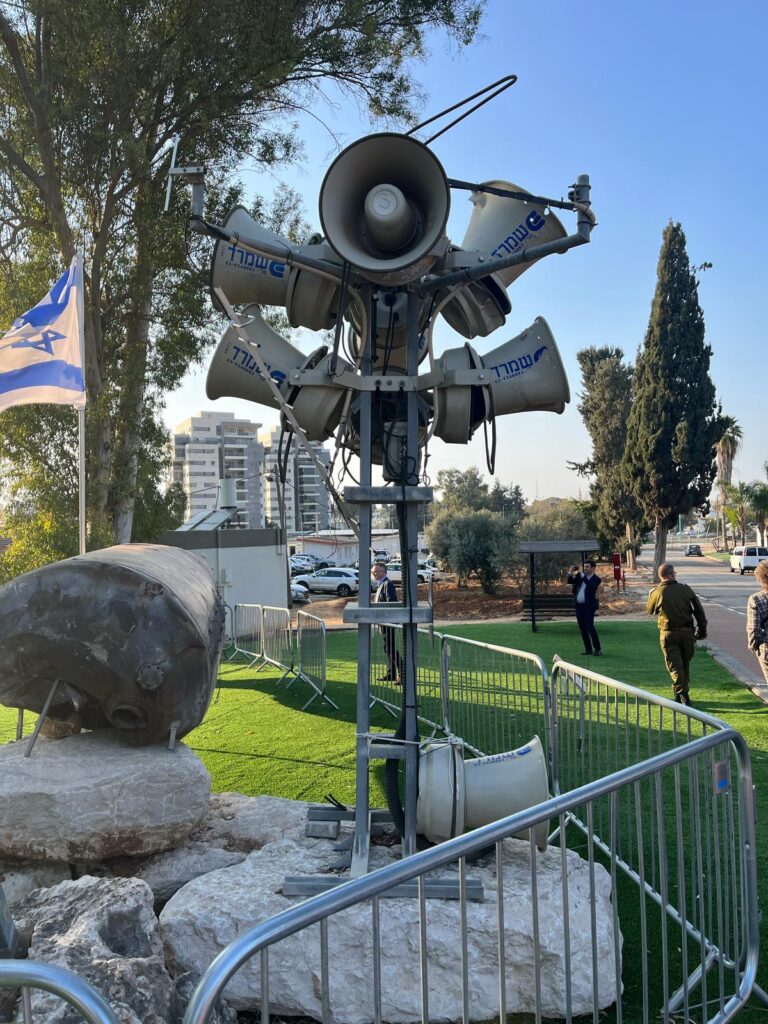
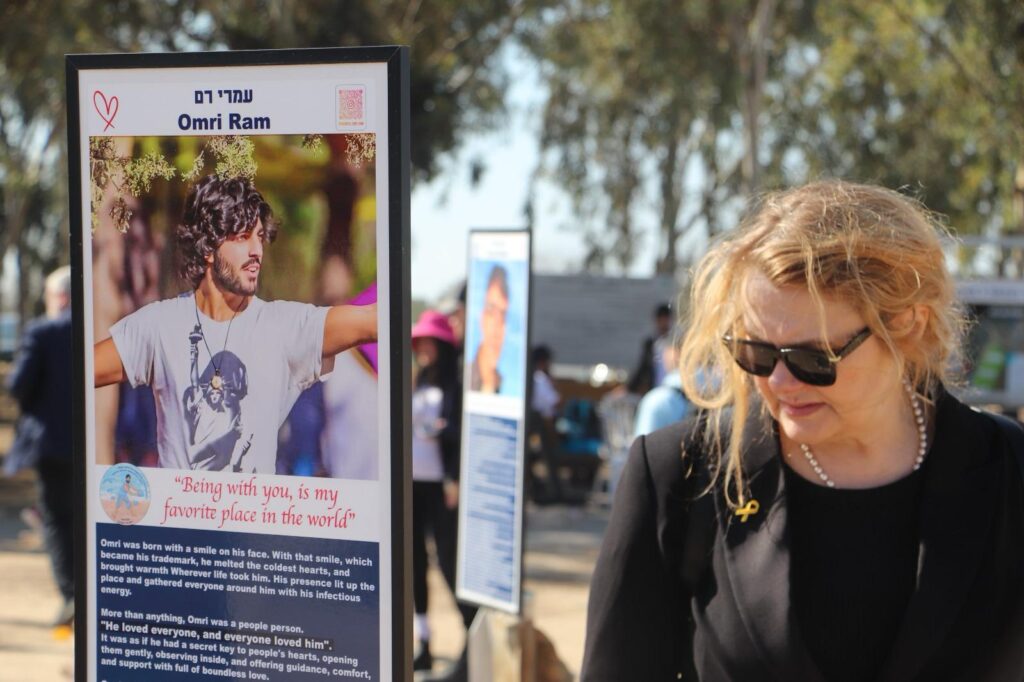
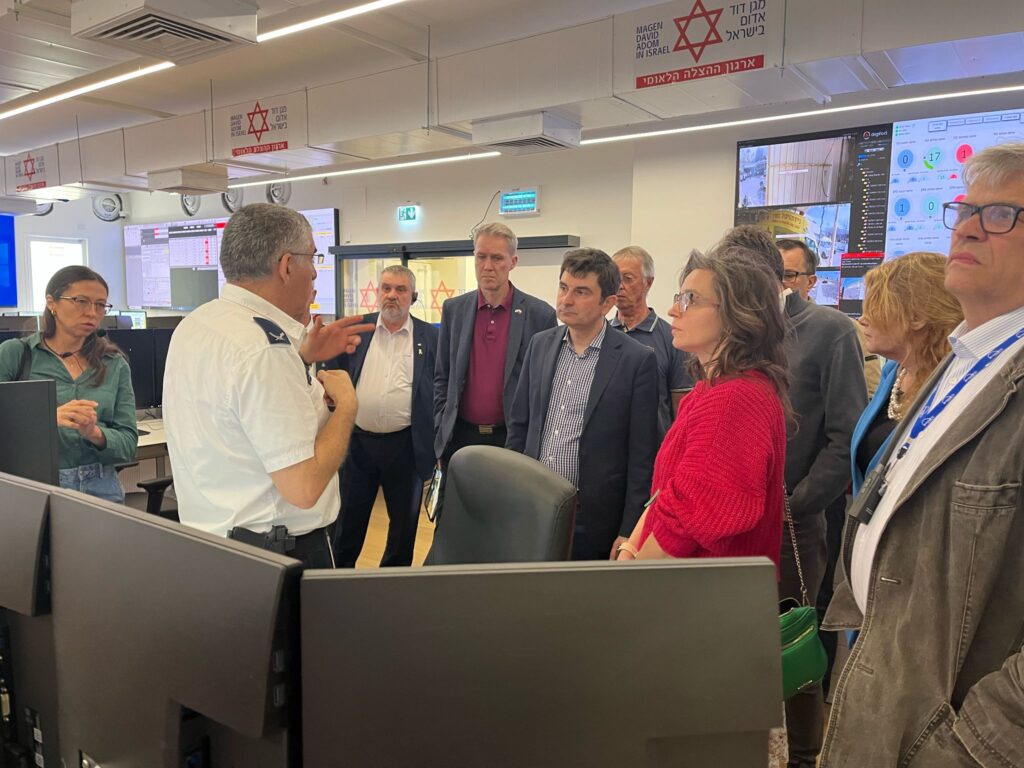
This visit focused on the critical subject of civil defense, offering an unparalleled opportunity for Polish representatives to acquire firsthand knowledge of Israel’s advanced civil defense systems, its sophisticated crisis management strategies, and the way these frameworks have been honed through decades of experience. This exchange proved to be especially significant given the contemporary challenges posed by geopolitical instability and emerging security threats.
Throughout the carefully crafted program, the delegation engaged with a range of high-ranking experts from key Israeli organizations, including the Israel Defense Forces (IDF), the National Emergency Management Authority (NEMA), the Homefront Command, and Magen David Adom, which together form the backbone of Israel’s national security infrastructure. Briefings from these authorities covered a variety of essential topics and provided invaluable insight into how Israel has developed some of the most comprehensive and effective civil defense strategies in the world.
The key highlights of the visit included:
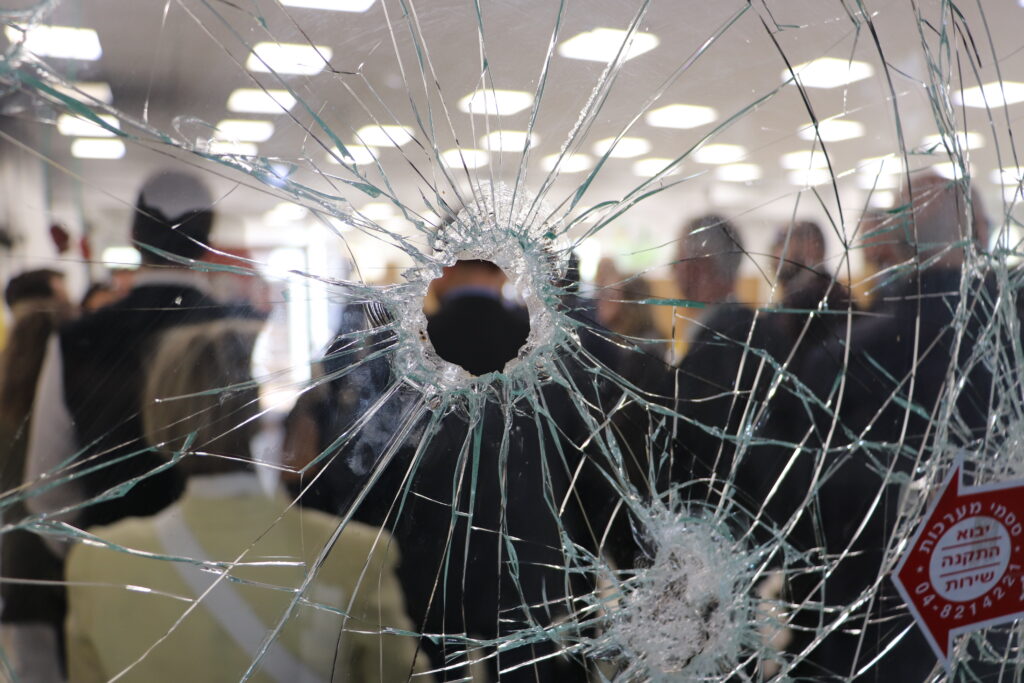
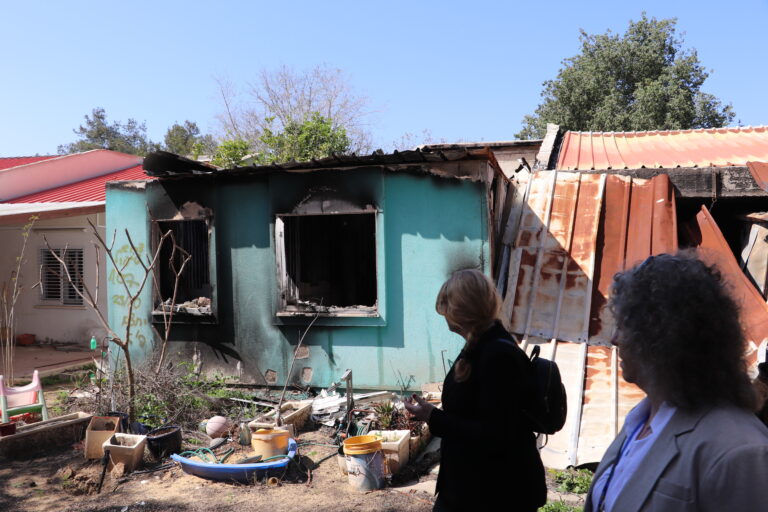
Civil Defense Procedures in Action:
A visit to Kibbutz Nir Oz, the site of attacks on October 7th, included a briefing with representatives from the IDF and police. This session detailed the attacks and the subsequent measures taken to ensure the safety of the civilian population and counter-terrorism efforts. The delegation also gained a clear understanding of how these measures were implemented to secure the community’s resilience in the face of an attack.
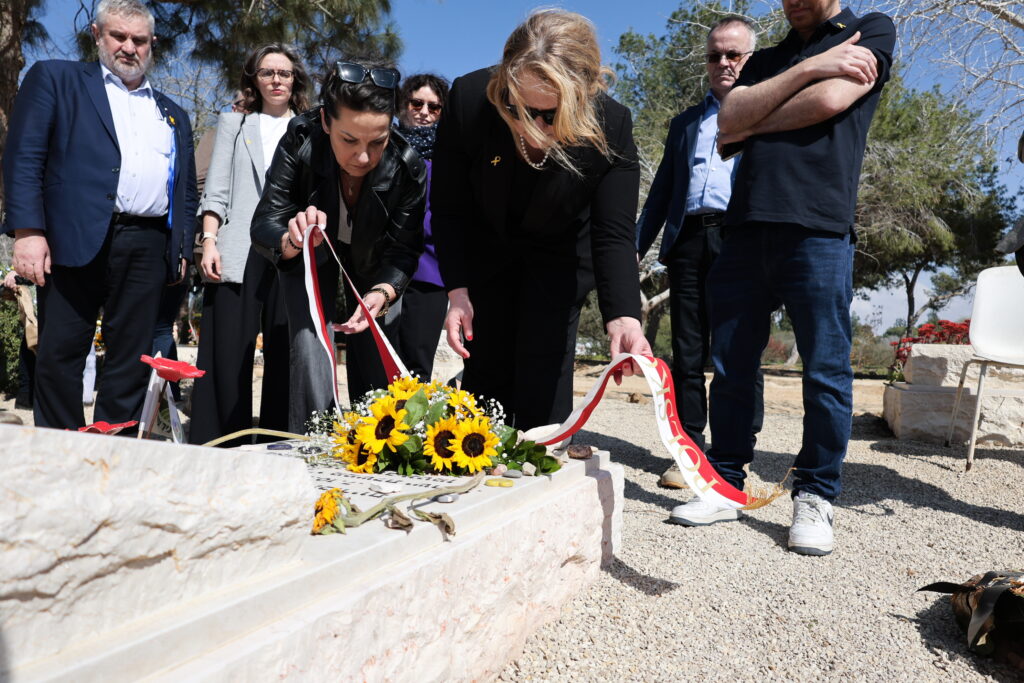
Mental Health, Urban Resilience, and Early Education:
Insights were provided by Prof. Eyal Fruchter, Co-Founder and Medical & Scientific Director at ICAR Collective, and Dr. Gila Matzliah-Liberman, a psychologist and Director of the Educational Psychological Service. Their presentations focused on the importance of mental health support, urban resilience, and early education during crises, emphasizing the need for psychological preparedness and strong social frameworks in times of national emergencies.
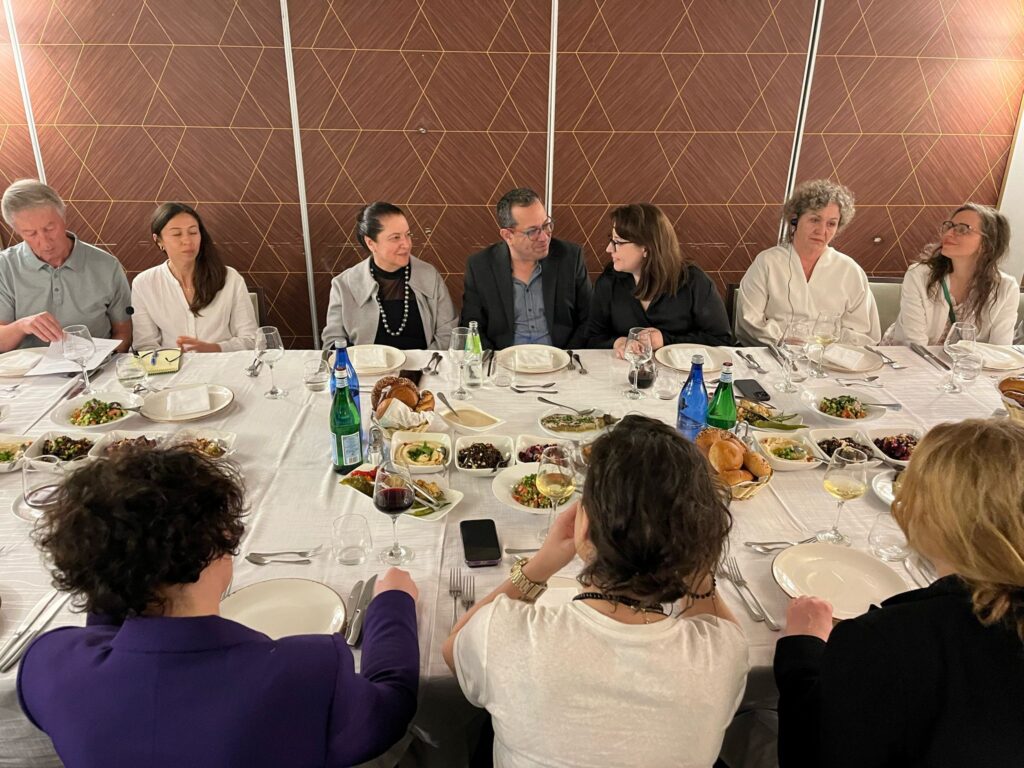
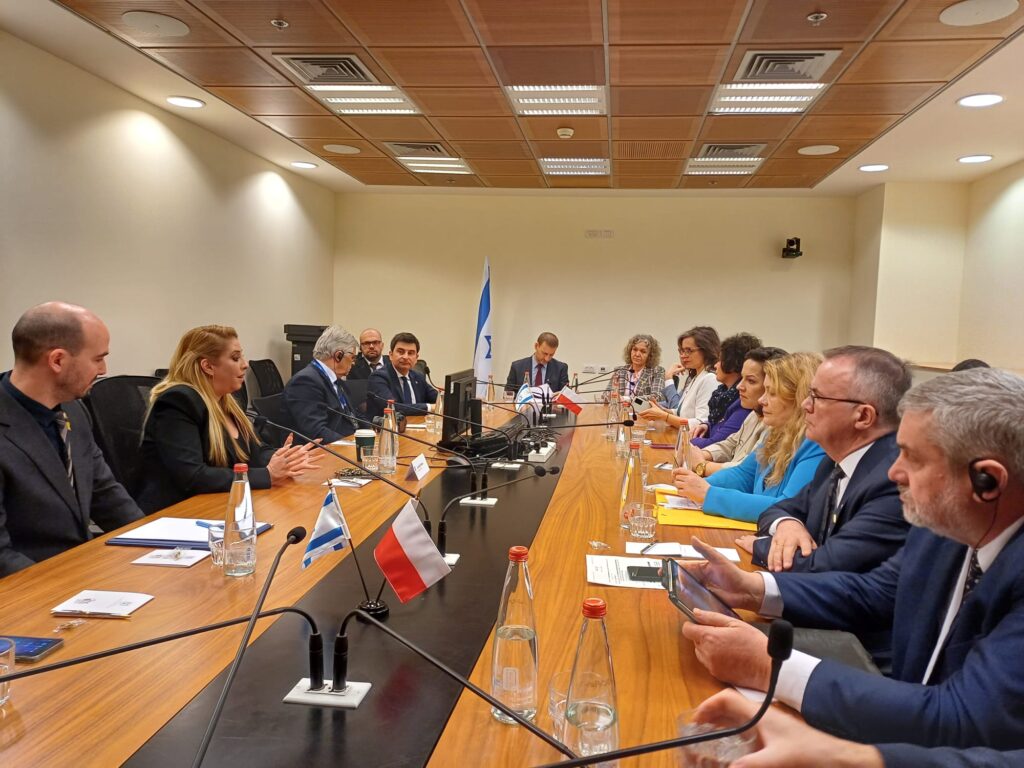
National Crisis Preparedness, Societal Resilience, and Crisis Communication:
A presentation by Colonel (Res.) Dr. Chilik Soffer, a globally recognized crisis management expert and former Head of the Civil Defense Department of the Homefront Command, IDF, offered in-depth knowledge on national crisis management. Dr. Soffer highlighted how Israel’s crisis communication strategies have been integral in maintaining societal cohesion and ensuring public safety during emergencies.
National Crisis Management Center (NEMA):
A meeting with Brigadier General Yoram Laredo, Head of NEMA, and Kobi Wimisberg, Director of the Strategic Cooperation and Aid Division at NEMA, gave the delegation a detailed look at Israel’s strategies for managing national-level crises. They were briefed on real-time coordination efforts that involve multiple agencies and the crucial role of early warning systems in Israel’s preparedness for a range of emergencies.
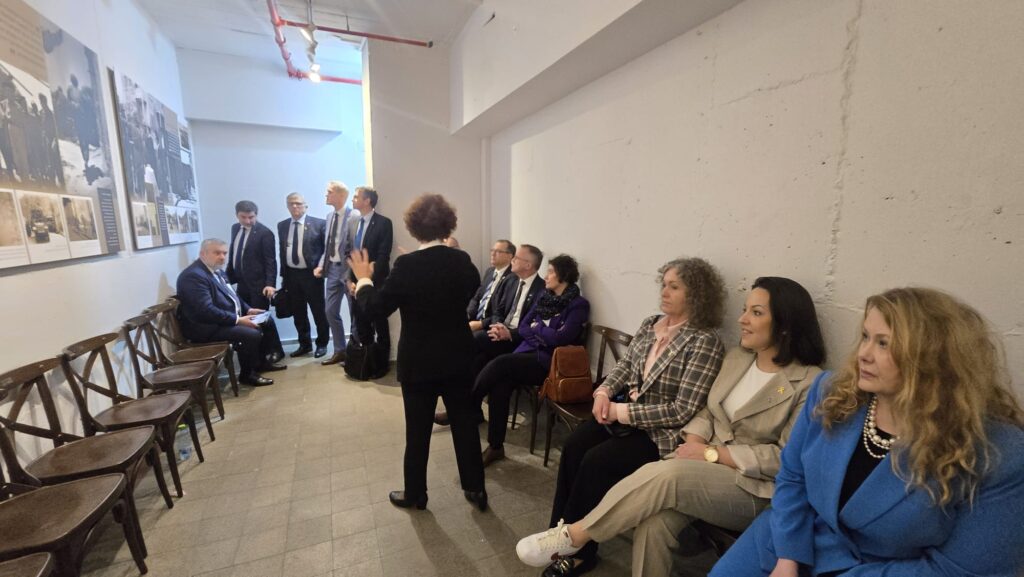
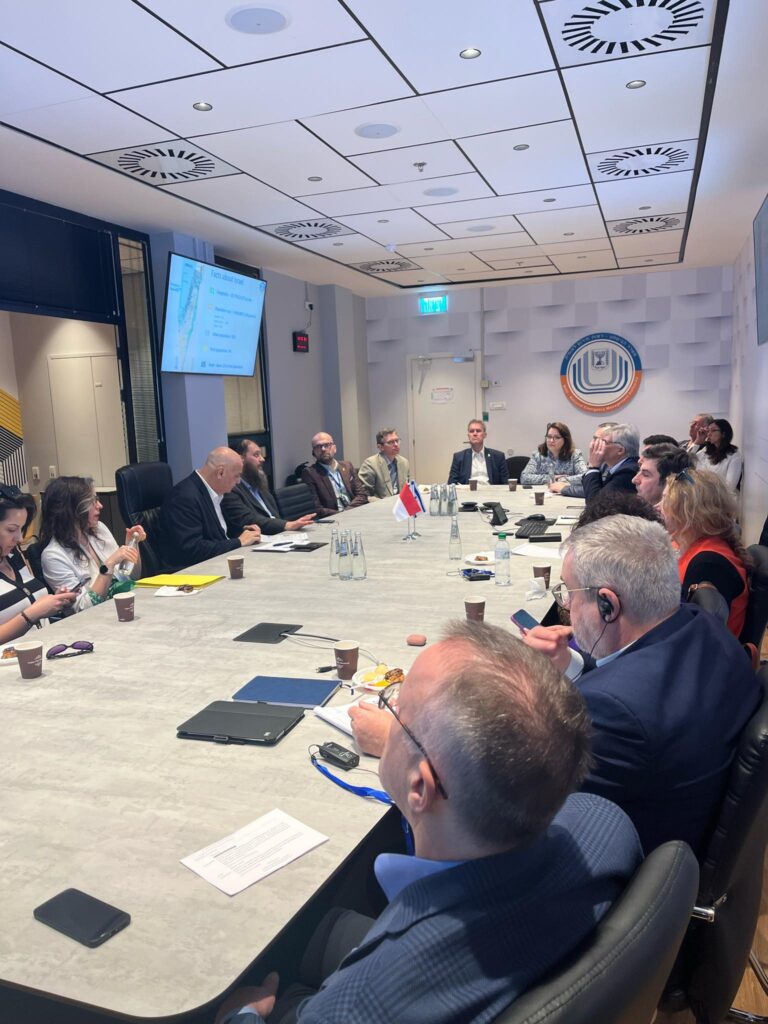
Early Warning Systems and National Crisis Management:
A discussion with a General from the Homefront Command provided insight into Israel’s national crisis management strategies during wartime, particularly regarding the collaboration between the military and civilian populations. The delegation learned how early warning systems are used to ensure timely responses to emergencies and mitigate potential damages.
Integrated Emergency Medical Response System:
A visit to the Magen David Adom Blood Bank offered the delegation an opportunity to observe Israel’s integrated emergency medical response system in action. This briefing highlighted the coordination of medical services, emergency logistics, and crisis management, underscoring the importance of having a cohesive and well-prepared response network during national crises.
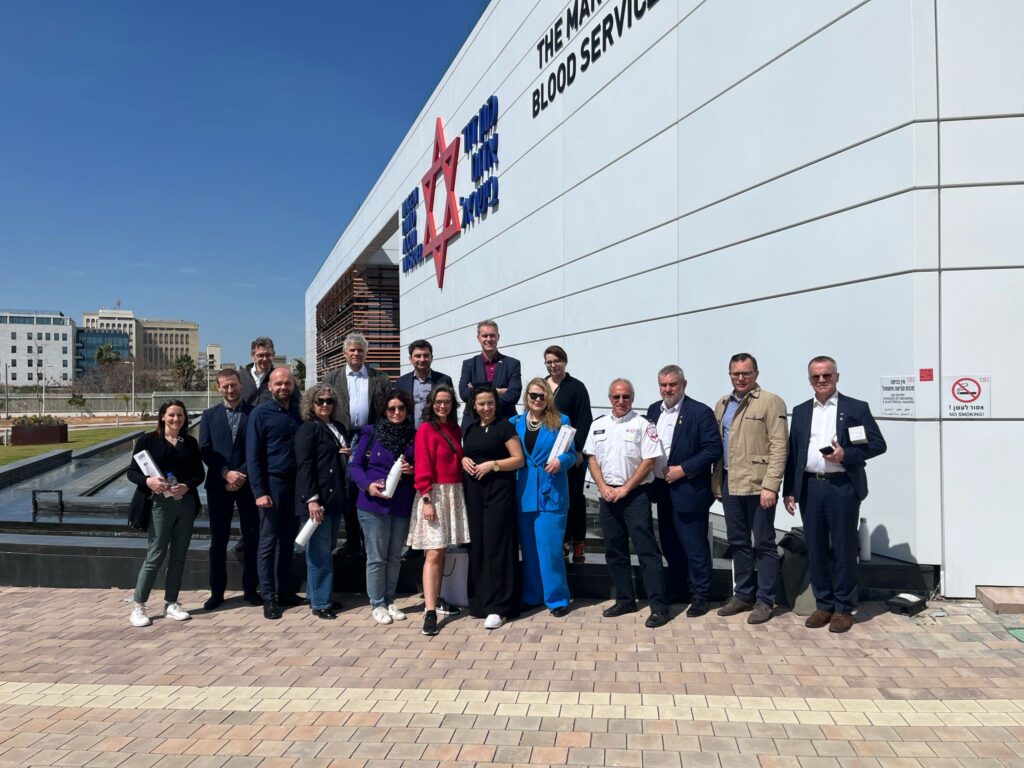
The visit wasn’t just about learning from Israel’s experts—it also provided the Polish delegation with the opportunity to reflect on their own national systems and explore potential areas for improvement in civil defense and crisis management in Poland. Beyond the briefings and expert talks, the program also included visits to significant sites. One such visit was to the home of the late Alex Dancyg in Kibbutz Nir Oz, who was tragically kidnapped by Hamas during the October 7th attacks. The delegation paid tribute to him and others affected by the attacks at Hostages Square in Tel Aviv. In Jerusalem, the group met with members of the Knesset and strategic experts from the Ministry of Foreign Affairs to discuss ways in which Poland and Israel could strengthen bilateral cooperation on crisis management and national security issues.
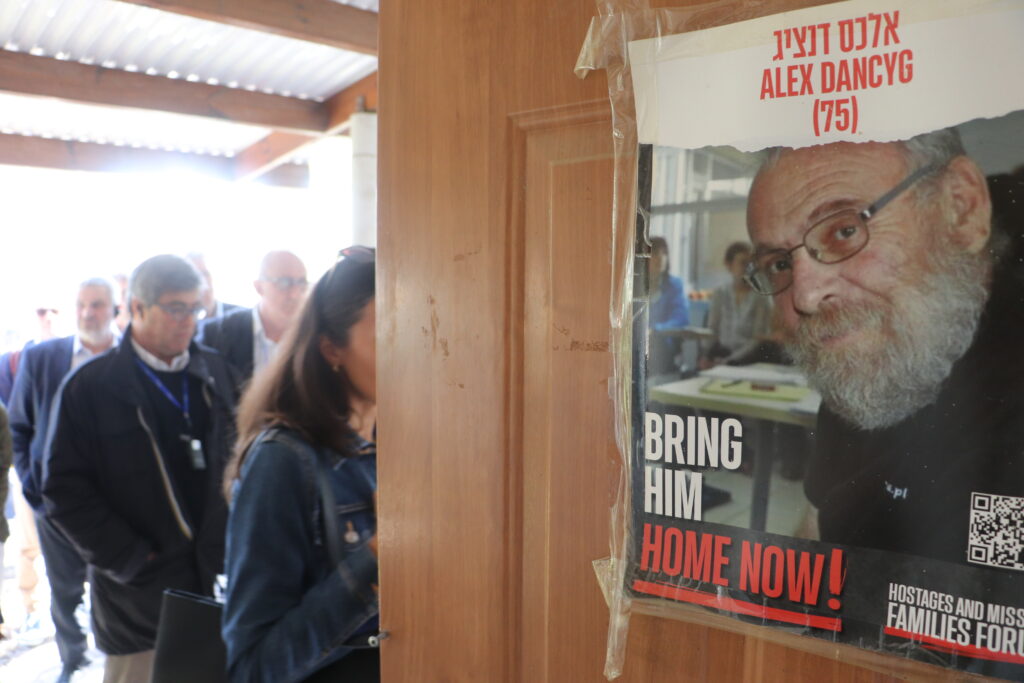
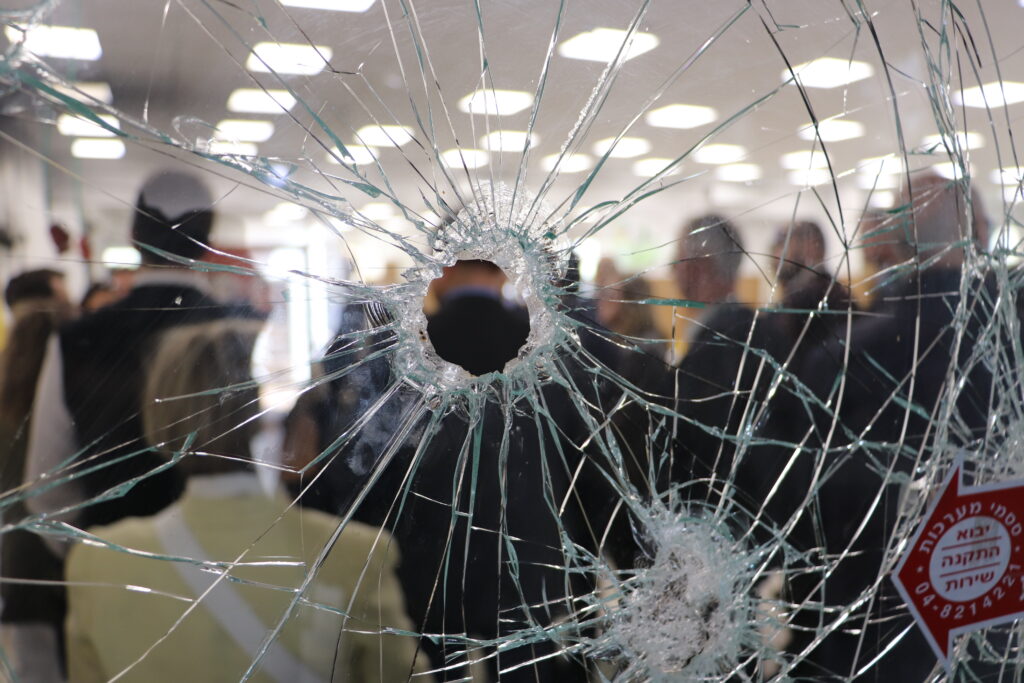
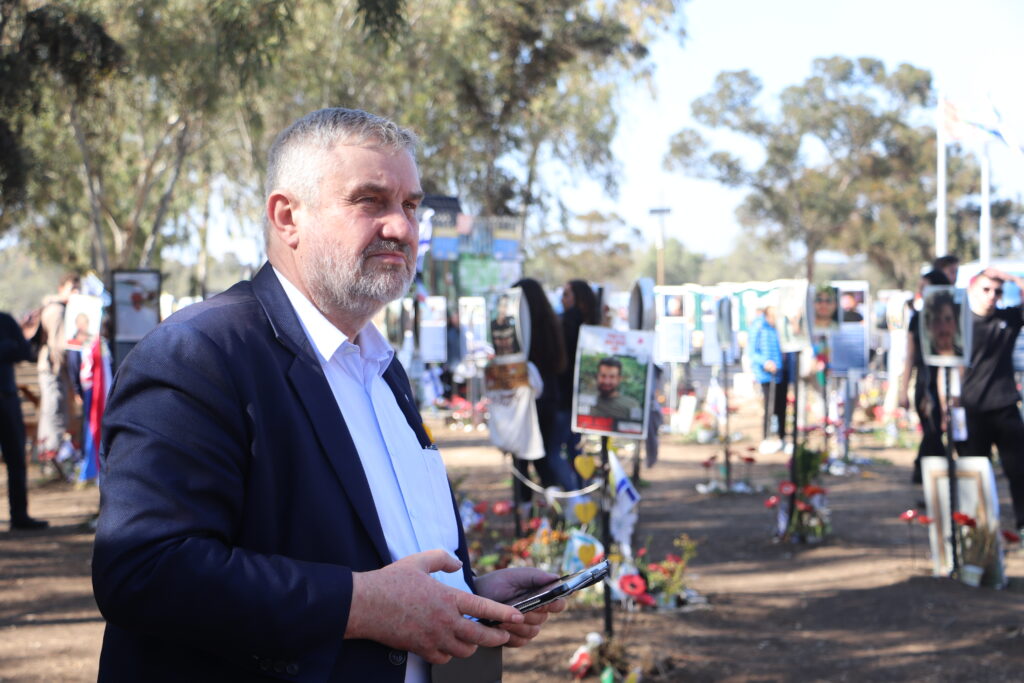
Throughout the program, ELNET-CEE received positive feedback from participants, who praised the quality of the briefings, the opportunity for meaningful discussions, and the comprehensive nature of the visit. This exchange was an important step in building stronger ties between Poland and Israel in the realms of civil defense and crisis preparedness. ELNET extends its gratitude to all partners, speakers, and speakers for their commitment to knowledge sharing, mutual understanding and collaborative learning.
